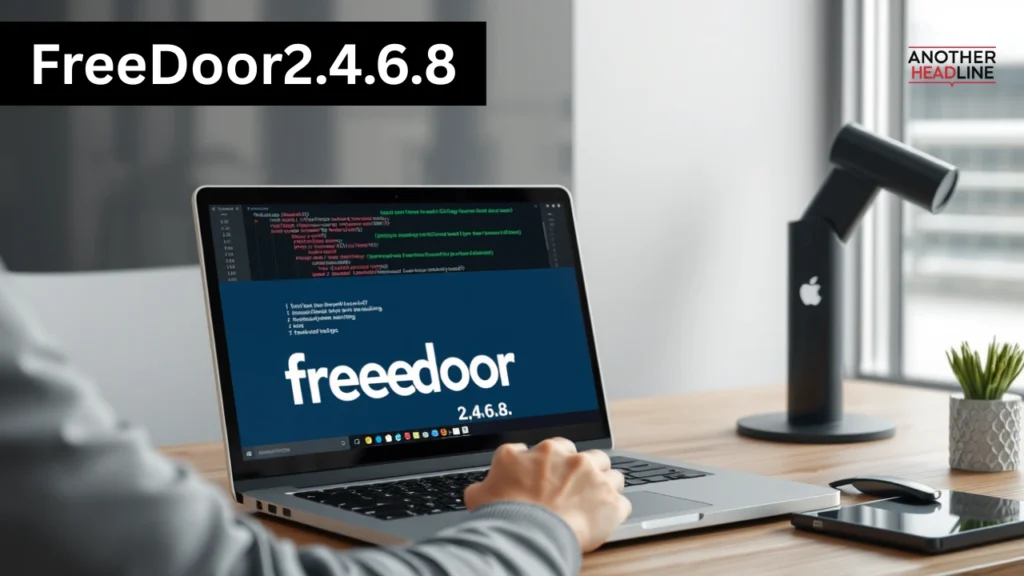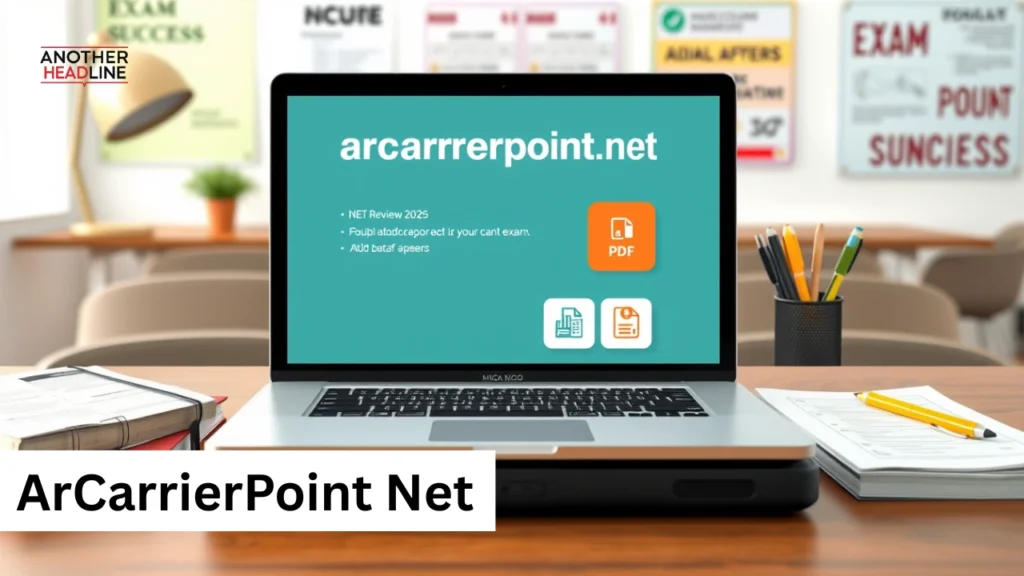FreeDoor2.4.6.8 is an advanced cybersecurity and anti-censorship tool developed by the Global Internet Freedom Consortium (GIFC). Designed for developers, IT professionals, and privacy enthusiasts, FreeDoor enables secure, censorship-free access to the internet through encrypted proxy routing. This updated version brings a host of improvements in stability, encryption, and user control—making it one of the most efficient privacy tools of 2025.
This comprehensive setup guide will walk you through everything you need to know about installing, configuring, and optimizing FreeDoor2.4.6.8 across major operating systems including Windows, macOS, and Linux.
What is FreeDoor2.4.6.8?

FreeDoor is a part of the DynaWeb suite of tools by GIFC, created to help users bypass online censorship and maintain secure internet access.
The tool uses encrypted proxy servers to mask your location, prevent surveillance, and access restricted or region-locked content securely.
Also Read
Version 2.4.6.8 introduces several key upgrades:
- Updated proxy network infrastructure for higher speed and uptime
- Enhanced encryption protocols to resist packet inspection
- Bug fixes improving connection stability and firewall compatibility
- Simplified configuration for developers managing multiple environments
Key Features of FreeDoor2.4.6.8
- Advanced Proxy Routing – Securely reroutes all outgoing traffic through multi-layered encrypted servers.
- Cross-Platform Support – Available for Windows, macOS, and major Linux distributions.
- Improved Stability – Optimized proxy switching for uninterrupted sessions.
- Smart Auto-Reconnect – Automatically re-establishes lost connections without manual input.
- Deep Threat Scanning – Detects spyware, adware, and network-level attacks.
- HTTPS Inspection – Ensures secure web sessions across browsers.
- Developer-Friendly Tools – CLI (command-line interface) and API support for automation and integration.
System Requirements
Before installing, make sure your system meets or exceeds the minimum specifications for smooth operation.
Hardware Requirements
- Processor: Intel Core i3 (6th Gen or later) / AMD Ryzen 3 or higher
- Memory (RAM): Minimum 4GB (8GB recommended)
- Storage: 2GB of free disk space
- Internet: Broadband connection required for updates and real-time protection
Operating System Compatibility
- Windows: Windows 10 (latest service pack) or Windows 11
- macOS: Version 12 (Monterey) or later
- Linux: Ubuntu 20.04+, Fedora 35+, or Debian 11+
Software Dependencies
- Windows: .NET Framework 4.8 or higher
- All Platforms: Java Runtime Environment (JRE) 11+
Pre-Installation Checklist

To ensure a successful setup, follow these essential preparation steps:
- Update your OS to the latest version for full compatibility.
- Temporarily disable antivirus or firewall software that may block the installer.
- Close all running applications to free system resources.
- Create a backup using System Restore (Windows) or Time Machine (macOS).
Step-by-Step Installation Guide
1. Downloading FreeDoor2.4.6.8
- Visit the official website: www.freedoor-security.com
- Go to the Downloads section.
- Choose FreeDoor2.4.6.8 and select your operating system package.
- Verify the download by comparing the provided SHA-256 checksum for authenticity.
2. Installation on Windows
- Locate the downloaded file —
FreeDoor2.4.6.8_Setup.exe - Right-click and select Run as Administrator.
- When prompted by Windows Security, click Yes.
- Follow the setup wizard:
- Accept the EULA (End User License Agreement)
- Choose Standard or Custom installation
- Wait for installation to complete
- Once installed, click Finish and launch FreeDoor.
3. Installation on macOS
- Double-click the
.dmginstaller file. - Drag the FreeDoor2.4.6.8 icon into your Applications folder.
- Open Applications, right-click the app, and select Open.
- Confirm any security warnings and enter your admin password.
- Follow the on-screen prompts to finish installation.
- Grant necessary permissions in System Preferences → Security & Privacy.
4. Installation on Linux
Option A: Using Package Manager
For Ubuntu/Debian systems:
sudo apt update
sudo apt install ./freedoor2.4.6.8.deb
For Fedora/RHEL systems:
sudo dnf install ./freedoor2.4.6.8.rpm
Option B: Using Terminal Script
chmod +x freedoor2.4.6.8_installer.sh
sudo ./freedoor2.4.6.8_installer.sh
Follow the terminal instructions to complete the setup.
Initial Configuration & Setup Wizard
When you launch FreeDoor2.4.6.8 for the first time, the Setup Wizard will appear.
Key Configuration Options
- Create an Account: Optional but recommended for accessing cloud sync and remote monitoring.
- Choose Security Level:
- Standard: Balanced protection for most users
- High: Maximum encryption and filtering
- Custom: Developer-defined firewall and scanning rules
- Schedule Scans: Daily or weekly automatic system checks
- Enable Real-Time Protection: Continuous threat monitoring
- Set Update Frequency: Daily automatic updates for maximum safety
Recommended Security Settings
For optimal privacy and performance, adjust these preferences:
- Enable Real-Time Scanning – Detects threats instantly.
- Automatic Daily Updates – Keeps virus definitions current.
- Enable Email Scanning – Filters malicious attachments.
- Activate Intelligent Firewall – Monitors incoming/outgoing connections.
- Turn On HTTPS Inspection – Ensures secure browsing.
- Schedule Weekly Deep Scans – Detects hidden or dormant threats.
Optimizing FreeDoor2.4.6.8 Performance
Performance tuning helps balance security and speed, especially on developer systems running multiple VMs or IDEs.
Tips to Improve Performance
- Reduce scan intensity during active coding sessions.
- Add trusted IDEs (like Visual Studio Code or IntelliJ) to the exclusion list.
- Limit background scanning while compiling code.
- Disable unnecessary protection modules if working offline.
- Schedule deep scans during off-hours.
Advanced Protection Modules
FreeDoor2.4.6.8 includes a range of next-gen security layers ideal for developers managing sensitive data:
- Behavior-Based Detection Engine – Identifies suspicious behavior patterns rather than relying solely on known signatures.
- Ransomware Shield – Prevents unauthorized encryption of files or repositories.
- Script Analyzer – Detects malicious scripts embedded in files or browser extensions.
- Network Intrusion Defense – Blocks unauthorized access attempts and port scans.
- API Access Control – Monitors developer tools for unsafe data transmission.
Troubleshooting Common Issues
1. Installation Fails to Start
- Ensure Administrator privileges are granted.
- Temporarily disable Windows SmartScreen.
- Double-check OS compatibility and software dependencies.
- Verify checksum integrity of the downloaded file.
2. “Another Security Product Detected” Error
- Uninstall existing antivirus or firewall tools.
- Use their official uninstaller utilities for clean removal.
- Restart your computer and retry installation.
- If issues persist, use the FreeDoor Cleanup Tool from the official site.
3. Post-Installation Performance Lag
- Go to Settings → Performance and adjust scanning priority.
- Set scanning to Low during user activity.
- Disable non-essential background tasks.
- Exclude trusted folders like project directories from scanning.
FAQs
Q1: How does FreeDoor2.4.6.8 ensure privacy and security?
FreeDoor encrypts your traffic and reroutes it through secure proxies, preventing ISP tracking, censorship, or third-party monitoring. It also provides malware detection, phishing protection, and firewall-level defense.
Q2: Can FreeDoor remove all malware types?
Yes. It’s equipped to detect and eliminate viruses, worms, trojans, spyware, ransomware, and adware. Regular updates are essential to maintain peak protection.
Q3: How often should I update FreeDoor?
Set automatic daily updates. This ensures your proxy servers, threat definitions, and firewall rules are always current.
Q4: Can I use FreeDoor alongside other antivirus programs?
While technically possible, it’s not recommended. Running multiple real-time protection tools can cause system slowdowns or conflicts. Use FreeDoor as your primary protection suite.
Developer Integration Tips
For developers integrating FreeDoor into secure environments:
- Use CLI commands for batch configurations.
- Leverage API hooks for automated proxy switching.
- Combine with Docker containers for isolated secure testing.
- Use the Custom Rule Editor to whitelist developer endpoints.
Final Verdict
FreeDoor2.4.6.8 is more than just an anti-censorship tool—it’s a complete cybersecurity framework for developers and privacy-focused users. Its upgraded encryption, intelligent firewall, and developer-ready features make it both versatile and powerful. Whether you’re working on sensitive projects, accessing restricted content, or securing client data, FreeDoor offers unmatched protection and reliability.
For anyone serious about maintaining anonymity and stability while developing in 2025, FreeDoor2.4.6.8 is an essential addition to your security toolkit.





